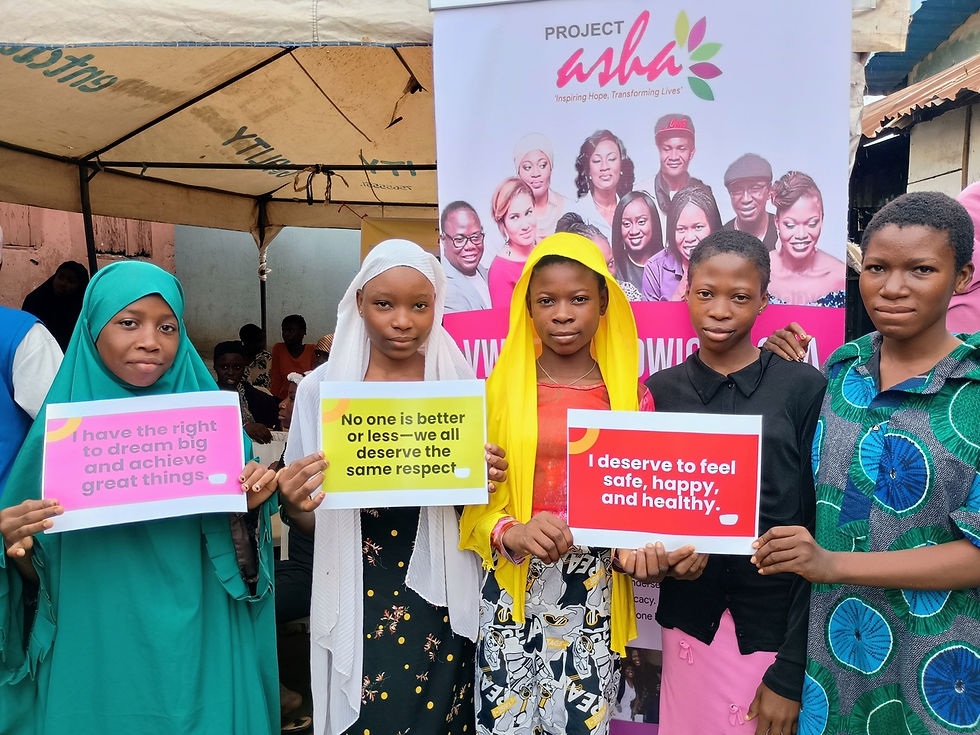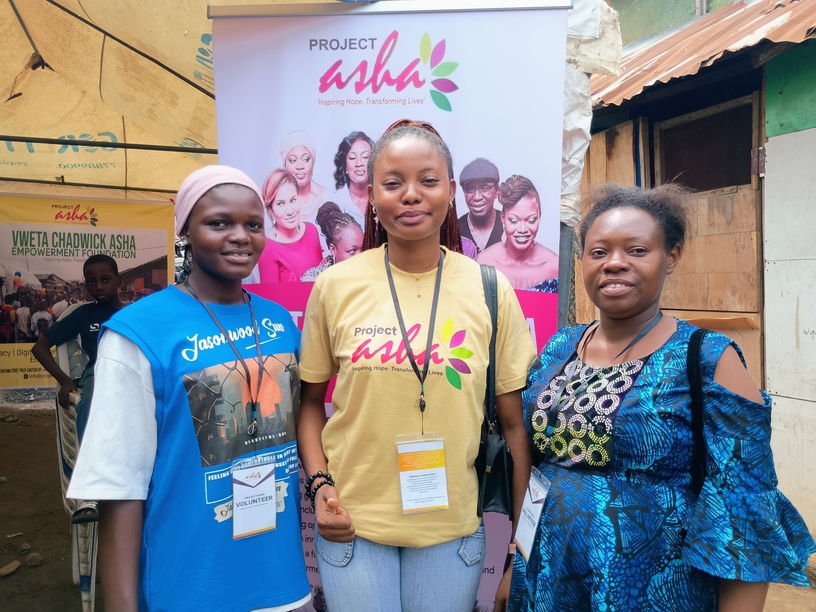Project Red Dot Outreach – Menstrual Hygiene Day Commemoration
- Project ASHA
- Jul 20
- 2 min read

In recognition of Menstrual Hygiene Day, ProjectASHA organized the Project Red Dot Outreach in Agege, Lagos State, a powerful community-driven initiative focused on empowering teenage girls aged 13 to 19 with vital knowledge, mentorship, and access to essential menstrual hygiene resources.
The outreach engaged 50 adolescent girls from underserved communities, creating a safe, inclusive space where they could learn about menstrual hygiene and health, boost their self-confidence, and receive practical guidance on preventing teenage pregnancy. At the heart of the outreach was our mission to break the silence around menstruation, confront harmful taboos, and ensure that no girl feels ashamed or excluded because of her period.
Through engaging and culturally sensitive sessions led by trained facilitators and health educators, participants explored the importance of menstrual hygiene management (MHM), bodily autonomy, and building self-worth. The use of relatable language and open dialogue allowed girls to ask questions freely and learn how to care for their bodies with confidence and dignity.

A standout feature of the outreach was our mentorship initiative, where each girl was paired with a volunteer female mentor, inspiring women from diverse backgrounds who offered support, encouragement, and guidance that extended far beyond the event. This mentorship fostered resilience, supported informed decision-making, and helped combat the negative societal pressures that too often led to school dropout or early pregnancy.
To support their menstrual health needs, each participant received a Period Toolkit, which included sanitary pads, hygiene products, and storybooks. These kits are a vital step toward menstrual equity, ensuring that a lack of access to sanitary products does not become a barrier to education or self-esteem.

ProjectASHA’s Commitment to Menstrual Hygiene/Health
At ProjectASHA, we are deeply committed to advancing menstrual health and hygiene (MHH) as a fundamental human right and a critical part of gender equality. Through initiatives like Project Red Dot, we are not just educating girls — we are restoring dignity, promoting health, and shifting narratives that have long excluded women and girls from conversations about their own bodies.
But we know we cannot do this work alone.
We are calling on partners, donors, NGOs, and corporate organizations to join us in scaling this impact by helping us reach more communities, supply more period kits, and create more safe spaces for education and mentorship. Together, we can ensure that every girl, no matter her background, has the information, support, and resources she needs to manage her period with dignity and pride.
Menstrual health is not a privilege — it’s a right. Let’s break the silence, end period poverty, and empower girls to thrive.
































Comments